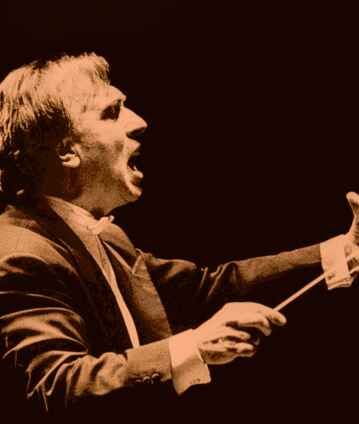Claudio Abbado conducts music inspired by the Prometheus myth

One of the hallmarks of Claudio Abbado’s years with the Berliner Philharmoniker was his fondness for programming cycles of concerts on particular themes. Central to this concert is the myth of Prometheus. It features music by Beethoven, Liszt and Nono, culminating in Scriabin’s highly virtuosic Prométhée in which the piano soloist is Martha Argerich. No less remarkable is the original filming by director Christopher Swann.
Abbado previously focused his concerts on “Faust” and “Shakespeare”, and in the 1991/92 season everything revolved around Prometheus, the son of Titan. According to Greek legend, Prometheus created men from clay and gave them fire after Zeus, the supreme god, had deprived them of it. In order to punish him, Zeus chained him to a rock in the Caucasus, where an eagle fed each day on his liver, which grew again each succeeding night.
This mythical figure inspired the visual arts, poetry, and music throughout the ages; here Abbado presented four very different works on this theme with the Berliner Philharmoniker. The concert began with excerpts from Beethoven’s ballet music to The Creatures of Prometheus, following by Liszt’s symphonic poem Prometheus, itself a response to Johann Gottfried Herder’s dramatic poem Prometheus Unbound. After the interval came excerpts from Luigi Nono’s Prometeo, the world premiere of which had been conducted by Abbado in Venice eight years earlier. Finally Martha Argerich unleashed a veritable firestorm with Scriabin’s Prométhée – Le Poème du feu, prompting the critic of Gramophone to describe her as “crazed high priestess, her delirious, delicate and unpredictable solo weaving through the orchestra like a bubbling stream of consciousness”.
The director Christopher Swann compiled the present film on the basis of the above material, calling it Musical Variations on a Myth. In the course of the film he depicted Prometheus as “creator of man” (Beethoven), “bound and liberated” (Liszt), “bringer of light” (Scriabin) and “the eternal wanderer” (Nono). Swann’s aim was to do far more than merely provide a faithful account of the actual concert. Instead he sought to identify new aspects in the music by means of his imaginative visualization of the material. The magazine Fanfare described the result as “well worth watching”.
© 1992 EuroArts Music International